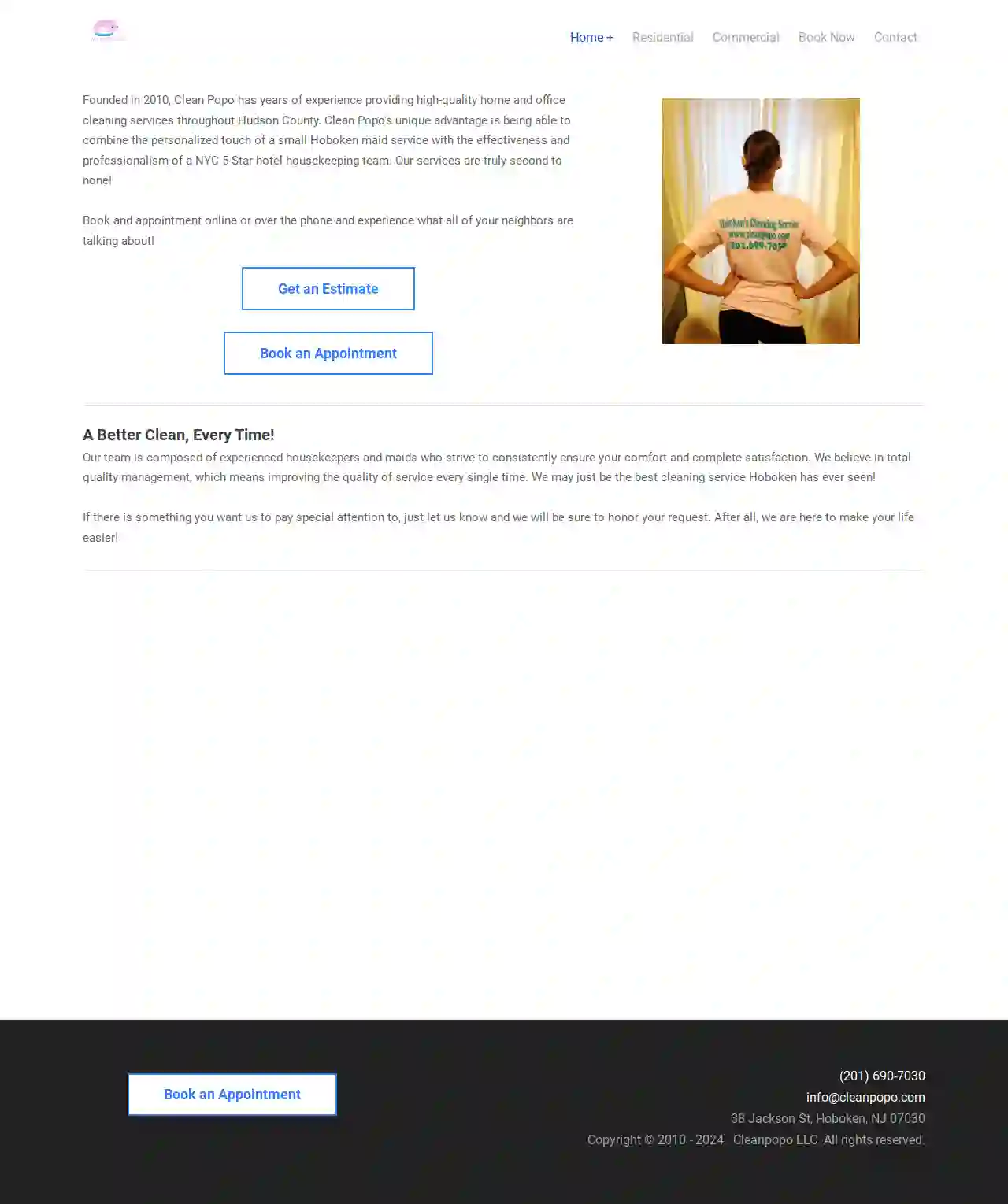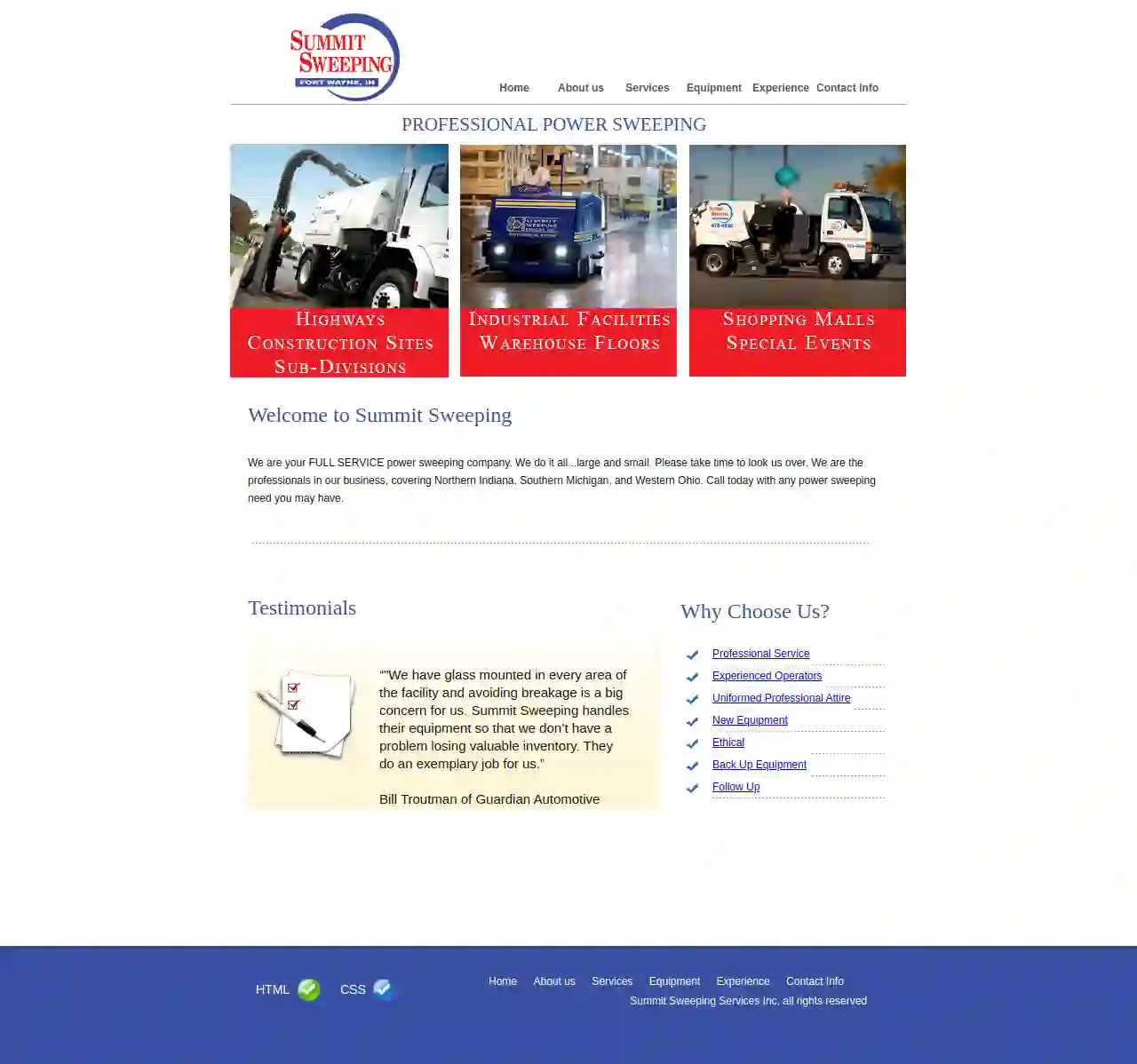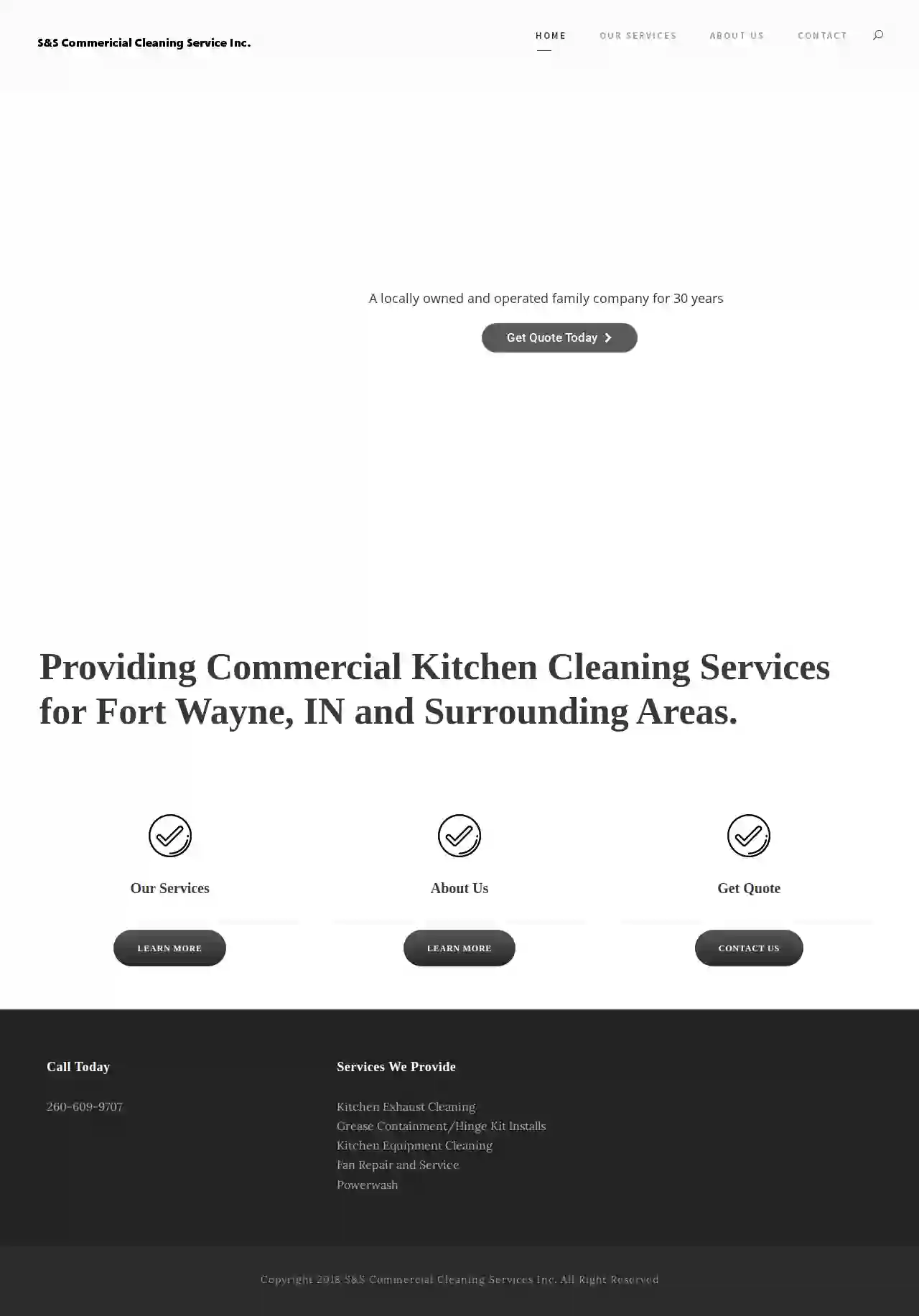Cleaning Services Upper Freehold
Find House Cleaning in Upper Freehold
Get multiple Cleaning Services quotes for your project today! Compare profiles, reviews, accreditations, portfolio, etc... and choose the best service.

Best Office Cleaning
56 reviewsJersey City, US- Services
- Why Us?
- Gallery
Get Quote
Clean Popo Cleaning
4.429 reviewsJersey City, US- Services
- Why Us?
- Gallery
Get Quote
Zurc Scouring Solutions
514 reviewsJersey City, US- Services
- Why Us?
- Gallery
Get Quote
Cozy Cleaners LLC
52 reviews123 Main St, Fairfax, 22030, USAt Cozy Cleaners FW, we pride ourselves on providing top-notch cleaning services to our valued customers. With years of experience in the industry, our team of experts is dedicated to delivering exceptional results that exceed your expectations. From one-time deep cleans to regular maintenance services, we've got you covered. Our mission is to make your home sparkle and shine, while also providing a safe and healthy environment for you and your loved ones. We're fully insured and accredited, so you can trust us to get the job done right. Contact us today to schedule your appointment and experience the Cozy Cleaners difference!
- Services
- Why Us?
- Accreditations
- Our Team
- Testimonials
- Gallery
Get Quote
Craft Laboratories
56 reviewsWayne, US- Services
- Why Us?
- Gallery
Get Quote
Summit Sweeping Services Inc
6707 Ideal Ave., Fort Wayne, 46809, USSummit Sweeping Services Inc. is a full-service power sweeping company, offering professional service, experienced operators, uniformed professional attire, new equipment, ethical practices, backup equipment, and follow-up services. With over 34 years of experience in the service industry, Summit Sweeping has grown from three employees to 12, with seasonal help reaching 15. The business operates seven days a week, with Christmas Day being the only closed day of the year. Summit Sweeping serves Northern Indiana, Southern Michigan, and Western Ohio, providing cleaning projects of all shapes and sizes.
- Services
- Why Us?
- Accreditations
- Our Team
- Testimonials
- Gallery
Get Quote
Lindsey Clean
4.963 reviewsJersey City, US- Services
- Why Us?
- Gallery
Get Quote
S&S Commercial Cleaning Service Inc.
4.913 reviewsWayne, US- Services
- Why Us?
- Gallery
Get Quote
Olimpic Maids | Jersey City Clean
4.943 reviewsJersey City, US- Services
- Why Us?
- Gallery
Get Quote
Kelly Maid Service
4.818 reviewsJersey City, US- Services
- Why Us?
- Gallery
Get Quote
Over 60,241+ Janitorial Contractors on our directory
Our janitorial service providers operate in Upper Freehold & beyond!
CleaningMatch has curated and vetted Top Cleaning Services near Upper Freehold. Find a top & reliable business today.
Frequently Asked Questions About Cleaning Services
- Floors: Use floor cleaners designed for your specific floor type, such as hardwood, tile, or laminate. Avoid using harsh cleaners that can strip finishes or cause discoloration.
- Countertops: Clean granite, marble, or quartz countertops with pH-neutral cleaners to prevent etching or damage. Use disinfecting wipes or sprays for other countertops.
- Bathrooms: Use bathroom cleaners designed to remove soap scum, mildew, and hard water stains. Avoid using abrasive cleaners on fixtures or tiles.
- Glass and Mirrors: Clean windows and mirrors with glass cleaners that leave a streak-free finish. Avoid using paper towels, which can leave lint behind.
- Appliances: Clean stainless steel appliances with specialized cleaners that prevent streaks and fingerprints. Use degreasers for ovens and stovetops.
- Using the wrong cleaning products: Certain cleaning products are unsuitable for specific surfaces. Using abrasive cleaners on delicate surfaces can cause scratches or discoloration.
- Not reading product instructions: Always read and follow the instructions on cleaning products to ensure proper usage and avoid potential hazards.
- Using dirty cleaning tools: Dirty cloths, sponges, and mops can spread germs and dirt instead of cleaning them. Rinse and sanitize your cleaning tools regularly.
- Skipping ventilation: Proper ventilation is essential when using cleaning products, especially those with strong fumes. Open windows and doors to allow fresh air circulation.
- Not allowing sufficient drying time: After cleaning, allow surfaces to dry completely to prevent mold and mildew growth, particularly in humid areas like bathrooms.
- Ignoring clutter: Clutter makes cleaning more difficult and time-consuming. Declutter regularly to maintain a cleaner and more organized home.
- Ventilation: Open windows and turn on the exhaust fan to improve air circulation.
- Declutter: Remove any items from countertops, the shower, and the floor to allow easy access.
- Pre-treat: Spray shower walls, tub, and toilet bowl with bathroom cleaner and let it sit for a few minutes to break down grime.
- Toilet: Scrub the toilet bowl with a toilet brush, paying attention to the rim and under the seat. Wipe down the exterior of the toilet with a disinfectant wipe.
- Shower/Tub: Scrub the shower walls and tub with a sponge or scrub brush. Rinse thoroughly.
- Sink: Clean the sink with a sponge or cloth and bathroom cleaner. Pay attention to the faucet and drain.
- Mirrors and Glass: Wipe down mirrors and glass surfaces with a glass cleaner and a microfiber cloth for a streak-free finish.
- Floors: Sweep or vacuum the floor, then mop with a floor cleaner designed for your bathroom floor type.
- Finishing Touches: Empty the trash can, replace towels, and put away any toiletries.
- Type of cleaning: Deep cleaning, regular cleaning, move-in/move-out cleaning, and specialized cleaning (e.g., carpet cleaning) have different price points.
- Size of the property: Larger properties typically require more time and resources, resulting in higher costs.
- Frequency of cleaning: Regular cleaning schedules often have discounted rates compared to one-time services.
- Location: Cleaning costs can differ based on regional labor costs and demand.
- Additional services: Extra tasks, such as window cleaning, laundry, or organization, will add to the overall price.
How do I choose the right cleaning products for different surfaces?
If you're unsure about the right cleaning product for a surface, consult the manufacturer's instructions or seek advice from a cleaning professional.
What are some common cleaning mistakes to avoid?
By avoiding these common cleaning mistakes, you can improve your cleaning efficiency and achieve better results.
What is the best way to clean a bathroom?
By following these steps, you can maintain a clean and hygienic bathroom.
How much do cleaning services cost in the USA?
To get accurate pricing, request personalized quotes from reputable cleaning services on CleaningMatch. They will assess your specific needs and provide a tailored cost estimate.
How do I choose the right cleaning products for different surfaces?
- Floors: Use floor cleaners designed for your specific floor type, such as hardwood, tile, or laminate. Avoid using harsh cleaners that can strip finishes or cause discoloration.
- Countertops: Clean granite, marble, or quartz countertops with pH-neutral cleaners to prevent etching or damage. Use disinfecting wipes or sprays for other countertops.
- Bathrooms: Use bathroom cleaners designed to remove soap scum, mildew, and hard water stains. Avoid using abrasive cleaners on fixtures or tiles.
- Glass and Mirrors: Clean windows and mirrors with glass cleaners that leave a streak-free finish. Avoid using paper towels, which can leave lint behind.
- Appliances: Clean stainless steel appliances with specialized cleaners that prevent streaks and fingerprints. Use degreasers for ovens and stovetops.
If you're unsure about the right cleaning product for a surface, consult the manufacturer's instructions or seek advice from a cleaning professional.
What are some common cleaning mistakes to avoid?
- Using the wrong cleaning products: Certain cleaning products are unsuitable for specific surfaces. Using abrasive cleaners on delicate surfaces can cause scratches or discoloration.
- Not reading product instructions: Always read and follow the instructions on cleaning products to ensure proper usage and avoid potential hazards.
- Using dirty cleaning tools: Dirty cloths, sponges, and mops can spread germs and dirt instead of cleaning them. Rinse and sanitize your cleaning tools regularly.
- Skipping ventilation: Proper ventilation is essential when using cleaning products, especially those with strong fumes. Open windows and doors to allow fresh air circulation.
- Not allowing sufficient drying time: After cleaning, allow surfaces to dry completely to prevent mold and mildew growth, particularly in humid areas like bathrooms.
- Ignoring clutter: Clutter makes cleaning more difficult and time-consuming. Declutter regularly to maintain a cleaner and more organized home.
By avoiding these common cleaning mistakes, you can improve your cleaning efficiency and achieve better results.
What is the best way to clean a bathroom?
- Ventilation: Open windows and turn on the exhaust fan to improve air circulation.
- Declutter: Remove any items from countertops, the shower, and the floor to allow easy access.
- Pre-treat: Spray shower walls, tub, and toilet bowl with bathroom cleaner and let it sit for a few minutes to break down grime.
- Toilet: Scrub the toilet bowl with a toilet brush, paying attention to the rim and under the seat. Wipe down the exterior of the toilet with a disinfectant wipe.
- Shower/Tub: Scrub the shower walls and tub with a sponge or scrub brush. Rinse thoroughly.
- Sink: Clean the sink with a sponge or cloth and bathroom cleaner. Pay attention to the faucet and drain.
- Mirrors and Glass: Wipe down mirrors and glass surfaces with a glass cleaner and a microfiber cloth for a streak-free finish.
- Floors: Sweep or vacuum the floor, then mop with a floor cleaner designed for your bathroom floor type.
- Finishing Touches: Empty the trash can, replace towels, and put away any toiletries.
By following these steps, you can maintain a clean and hygienic bathroom.
How much do cleaning services cost in the USA?
- Type of cleaning: Deep cleaning, regular cleaning, move-in/move-out cleaning, and specialized cleaning (e.g., carpet cleaning) have different price points.
- Size of the property: Larger properties typically require more time and resources, resulting in higher costs.
- Frequency of cleaning: Regular cleaning schedules often have discounted rates compared to one-time services.
- Location: Cleaning costs can differ based on regional labor costs and demand.
- Additional services: Extra tasks, such as window cleaning, laundry, or organization, will add to the overall price.
To get accurate pricing, request personalized quotes from reputable cleaning services on CleaningMatch. They will assess your specific needs and provide a tailored cost estimate.